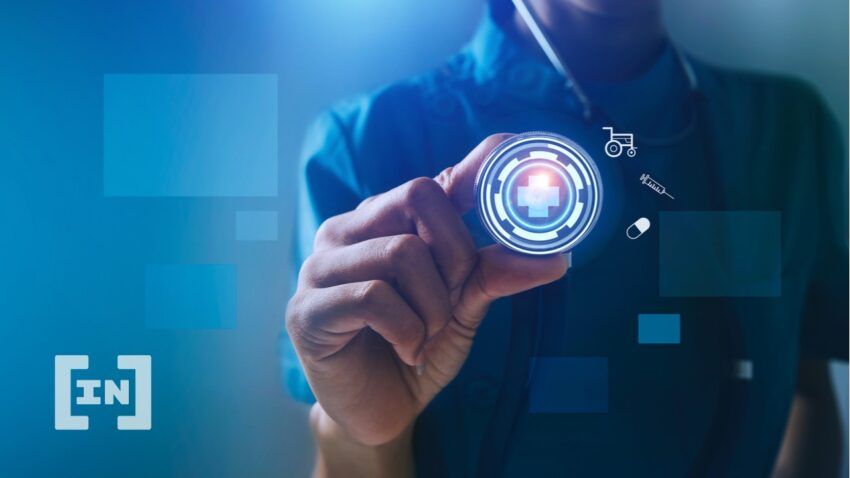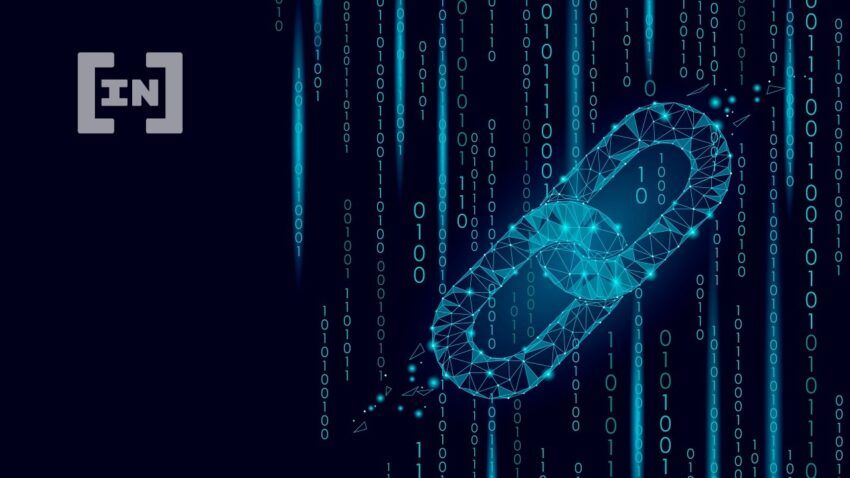Medaverse is here! The healthtech industry is poised to revolutionize the way patients, healthcare organizations and pharmaceutical companies operate with medical data, says Anna Bondarenko of DeHealth.
Medical data is unquestionably some of the most valuable information we have because of its importance in furthering medical research and improving healthcare outcomes. However, there’s a huge disconnect in the industry between pharmaceutical companies and patients. Patients have no real control over how or when pharmaceutical companies access and use their data.
Phillipe Gerwill is a Digitalization Humanist and pharmaceuticals expert. He says, “When it comes to medical data, pharmaceutical companies are not talking to patients. Pharmaceutical companies are mainly in a B2B (business to business) model rather than a B2C (business to consumer, or patient) model.”
In essence, pharmaceutical companies are only dealing with healthcare providers and cutting patients out completely because the healthcare providers are the ones who technically own patients’ data.
However, this B2B model is leaving a lot of money on the table for both patients and healthcare organizations. Here’s what I mean:
A single medical record can go for up to $1,000 on the black market. Medical records contain more sensitive personal information than credit cards, so they have a much longer life than a stolen credit card number. It’s enough to build an entire false persona that can be used to illegally get prescriptions, drugs, and expensive medical care. Hence, unscrupulous data collectors constantly try to breach medical systems to steal this information to sell to the highest bidder.
The legal healthcare data market is just as lucrative. Experts say that electronic medical health records make up an industry worth roughly $27 billion. Pharmaceutical companies are already paying for massive datasets from private DNA labs, insurance companies and hospitals worldwide.
Datasets
These datasets are extremely valuable because companies can use them to analyze real-world performance of medicines. Because clinical trials are so expensive, this is a more effective method for research and real-world application across a larger group of people.
This is legal in countries like India, Europe, the U.S. and beyond, and there’s no need for companies to compensate or even notify patients. While most people understand this, not everyone knows there’s potential for an alternative.
The increased use of blockchain technology means that patients can have more control of their medical data (and more financial rewards). It also opens the door to more reliable patient data for the pharma industry, which means better research can be done to develop more effective drugs.
Let’s talk about how the blockchain can change the healthcare data market.

Medaverse in Action: What Individuals Need to Know
First, let’s talk about the blockchain. One important thing to note is that “The Blockchain” is not a single entity.
There are many blockchains, and each serves a different purpose. For example, DHLT Network is built as decentralized storage for health data and digital assets. With the help of blockchain, the storage provides users with a secure way to use their medical data online.
Simply put, blockchain is a digital ledger structured so that it’s nearly impossible to hack, change, or cheat. It’s a set of secure information blocks chained together in sequence. (Hence the name, blockchain.) This set of blocks creates a secure ledger distributed across a vast network of individual computers or nodes.
One appealing feature of blockchain is that any alterations to the data are immediately detectable. It’s also too hard to alter or replace these information blocks. It would be much too mathematically complex. Such strong protection is ideal for sensitive medical data.
Additionally, there’s the decentralized aspect of the ledger. This is one of the most talked-about features of blockchain technology.
Decentralization happens through “peer-to-peer consensus.” Basically, a majority of the network must agree on the next block that goes in the chain. There’s no central control structure to be compromised, so breaches are extremely unlikely.
We have the technology now to make medical data work for the patient. By leveraging more intelligent, connected, data-driven protocols (aka “web 3.0”), patients can safely, quickly share their records with doctors from different specialties. They can also get the option to monetize their records by allowing pharmaceutical companies to purchase their unique data to help further research.
Let’s take a closer look at how patients can use blockchain tech to make their data more easily accessible.
Medaverse: How Blockchain Solves the Sharing Problem For Patients
The blockchain approach can (and should) change the paradigm of medical information sharing. Current methods are inefficient, complicated, and unrewarding for patients.
This is great for individuals for two reasons.
First, consider how frustrating and slow it is to get medical records transferred or shared between doctors. Most healthcare companies use legacy systems (aka dinosaur tech compared to today’s standards). These systems often don’t communicate well (or at all) with other systems, so record-sharing is difficult if you have more than one doctor at a different facility.
This means that if you need medical data shared between doctors (e.g., if you have a neurologist who needs to share data with your primary doctor), it’s a tedious process that takes a lot of time and effort.
Second, it eliminates the issue that patients don’t get a share of the profits that are available from selling their data to pharmaceutical companies for research purposes. Blockchain gives patients more control over how and when their medical data is used. Based on blockchain technology, decentralized storage receives daily clinical, medical and personal data.
This data on the health status of people (users) is stripped of identifying information and organized for companies to purchase and use right away. A special native coin, created with a highly secure smart contract, lets users financially benefit from sharing this information.
With this blockchain procedure, users can be compensated for their data instead of giving all of the control and profits to healthcare companies (since they technically own patient data), which is how the current situation stands.
1. Better sharing means better care.
Here’s an example of how this can work. A user registers and receives a new, unique blockchain ID within a network (like DeHealth’s DHLT network). The user fills in their data, and the healthcare providers fill in the user’s medical data. This creates a complete record secured within the blockchain ledger.
Using this method improves patient care and data management. Patient-reported data doesn’t always get accurately recorded, negatively affecting their health. Using blockchain, patients can instead have a digital record that is secure and controlled, yet easily accessed by authorized providers. The ability to provide a single, secure record to all providers gives a more complete, detailed view of an individual’s health. In turn, this paves the way for more holistic care.
2. Patients choose how to monetize their data securely.
When individuals sign up for a network like this, the app handles depersonalization, so patients don’t have to. Depersonalization strips all identifying personal data from a medical record before it’s sold to maintain privacy and security. This gives pharmaceutical companies access to the data they need for research while maintaining a patient’s anonymity.
Handling data this way gives patients a chance to receive extra income from their medical data. Before, healthcare providers could simply use their data without patient permission and profit. This new solution means patients get control and financial rewards for their data, and they have a say in how their medical histories are used.
For instance, DeHealth follows all major global data governance standards (like the Data Protection Act, GDPR, and HIPAA) and uses independent experts like Hacken to verify security before any data is sold. Participating in these medical blockchain ledgers gives patients more control over information privacy.
Besides security, patients can finally receive financial compensation for their valuable data. Corporations have long been profiting from this information by using it to inform drug development and medical technology research, so it’s time for individuals to get their share, too.
Blockchain technology treats patient data like the asset it is. It does so in a simple way that patients can securely benefit from.

Medaverse: Buyers Benefit Even More With Blockchain Health Data
Pharmaceutical companies lose huge amounts of money to fake data and hacking every year. IBM reports that medical data breaches cost healthcare companies $3-7 million per incident.
Blockchain technology provides a more secure option that both patients and healthcare companies benefit from.
1. Handing patients control takes power from hackers.
Right now, the black market for medical data is enormous. Hackers are constantly looking for ways to breach medical systems, and many succeed. In 2021, 45 million individuals were victims of healthcare data attacks.
This kind of insecurity makes people wary of companies requesting sensitive medical data. It also pressures the entire healthcare industry to lock down records. This slows development of new drugs, medical tech and life-saving care.
With the blockchain, individuals gain security and confidence. It takes power away from hackers and increases the value of legitimate medical data. It also makes medical record fraud more difficult, which keeps healthcare costs lower.
It’s true that blockchain tech isn’t infallible, but according to the U.S. Department of Health and Human Services, in 2021, data major breaches were reported every day.
In contrast, even though blockchain hacks have become somewhat more common, the technology is considered more secure because there’s no single point of entry to hack, which is the case for traditional healthcare record storage. The spread-out (or decentralized) nature of a blockchain network means that it’s harder for a hacker to take over the blockchain system and extract huge chunks of medical data.
2. Healthcare companies get better data.
Improved security also means higher-quality datasets. Companies that train healthcare AI understand the importance of quality data. Trusting vetted companies to aggregate, structure and protect datasets means less time is wasted sorting usable information. This is important because it typically takes a lot of human effort to sort patient data into the specific formats needed to successfully train AI algorithms or efficiently develop research. More efficient data means more efficient care.
Through blockchain tech, companies have a reliable marketplace to source verified data. In the case of DeHealth, user profiles are broken up into three parts: personal data, medical data, and lifestyle data.
Personal data (anything identifying like name, age, address) stays encrypted and separate. Medical and lifestyle data are encrypted with a unique private key. This allows users to upload it into the larger DeHealth medical base if they wish. From here, users have the option to sell access to all or part of the data they uploaded.
Buyers have the ability to buy a license for specific sets of data (e.g., diabetics with an active lifestyle, or people with both depression and high cholesterol, etc.), so they can better allocate their funds according to what they’re researching.
In addition, these licenses grant access to dynamic data, so companies can monitor how the patients progress over time and use that to inform their research. This is similar to how long-term scientific studies are conducted, but this is a more cost-effective route.
Web 3.0 Promises a Safer, More Profitable Medical Data Exchange
Medical blockchain ledgers aren’t widespread yet, but DeHealth and other companies are working to change that. We’re not alone in believing that blockchain is the answer to the inequality and difficulties surrounding medical data sharing. Both patients and healthcare entities can benefit from embracing new technology. Together, we can make healthcare data sharing safer and more profitable for everyone.
About the Author

Anna Bondarenko is the Managing Partner and co-founder of DeHealth. The President of the international consortium “eHealth.” She actively cooperates with the public sector for its digitalization: especially, in the healthcare sector, where Anna is pushing the issues of cybersecurity, personal data protection, and the introduction of new economic models. Being the President of the international consortium eHealth, Anna consolidates the best experts in the field of digital health and more than 15 million patients, into one platform for the development of digital health worldwide. DeHealth software is used by 3 million patients and 35,000 doctors.
Got something to say about the medaverse or anything else? Write to us or join the discussion in our Telegram channel. You can also catch us on Tik Tok, Facebook, or Twitter.
Disclaimer
In compliance with the Trust Project guidelines, this opinion article presents the author’s perspective and may not necessarily reflect the views of BeInCrypto. BeInCrypto remains committed to transparent reporting and upholding the highest standards of journalism. Readers are advised to verify information independently and consult with a professional before making decisions based on this content. Please note that our Terms and Conditions, Privacy Policy, and Disclaimers have been updated.


